- writing date 2024.02.08
- author KU TODAY
- hits 783
KU Life
Yoo-rim Ki (Department of French Language and Literature, ‘19; Editor-in-Chief),
Hyun-bin Seo (Department of Sociology, ‘20),
Da-mi Lee (Department of Korean Language and Literature, ‘20),
Ji-yeon Nah (School of Life Sciences, ‘21), Han-gyeol Lee (Business School, ‘22)
Han-gyeol Lee (Business School, ‘22)
Magazine Club But You May Feel Disappointed If You Don’t
‘You Don’t Need to Know Almost Bimonthly’
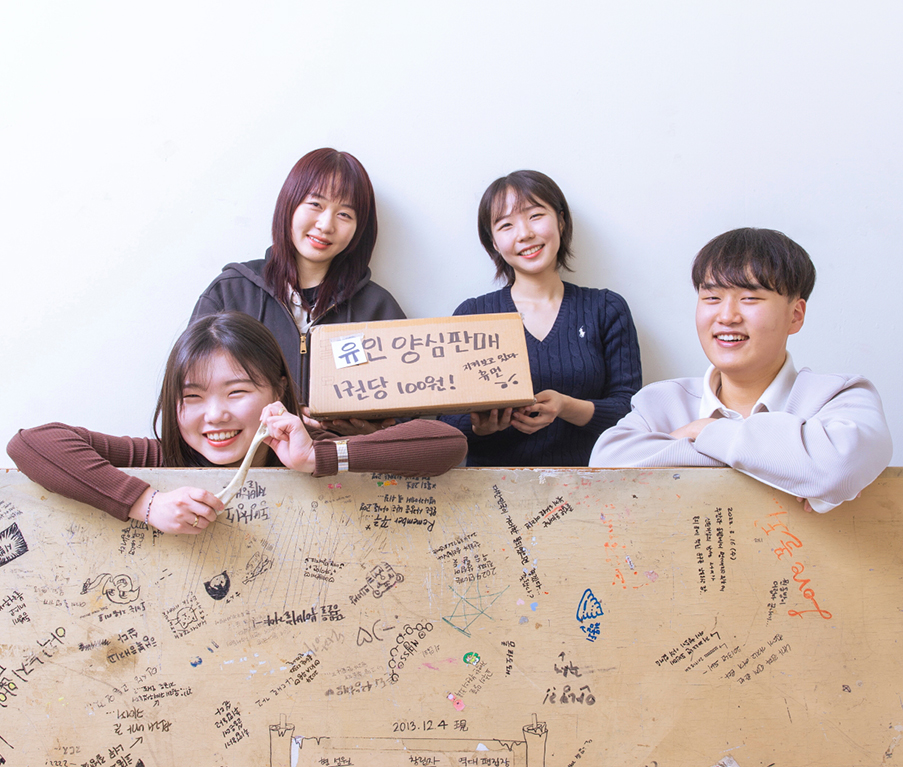
Since 2010, ‘You Don’t Need to Know Almost Bimonthly’ (hereinafter, ‘Don’t Know’), a campus magazine student club, has been covering internal Korea University news and news from the wider world in a sarcastic and bold way. As all articles are handwritten, the unique personalities of each club member can be discerned. The price of the magazine has been always the same, 100 won, since its first publication. The club members go to every nook and cranny of the Anam-dong area to find stories that would otherwise be unknown without ‘Don’t Know.’
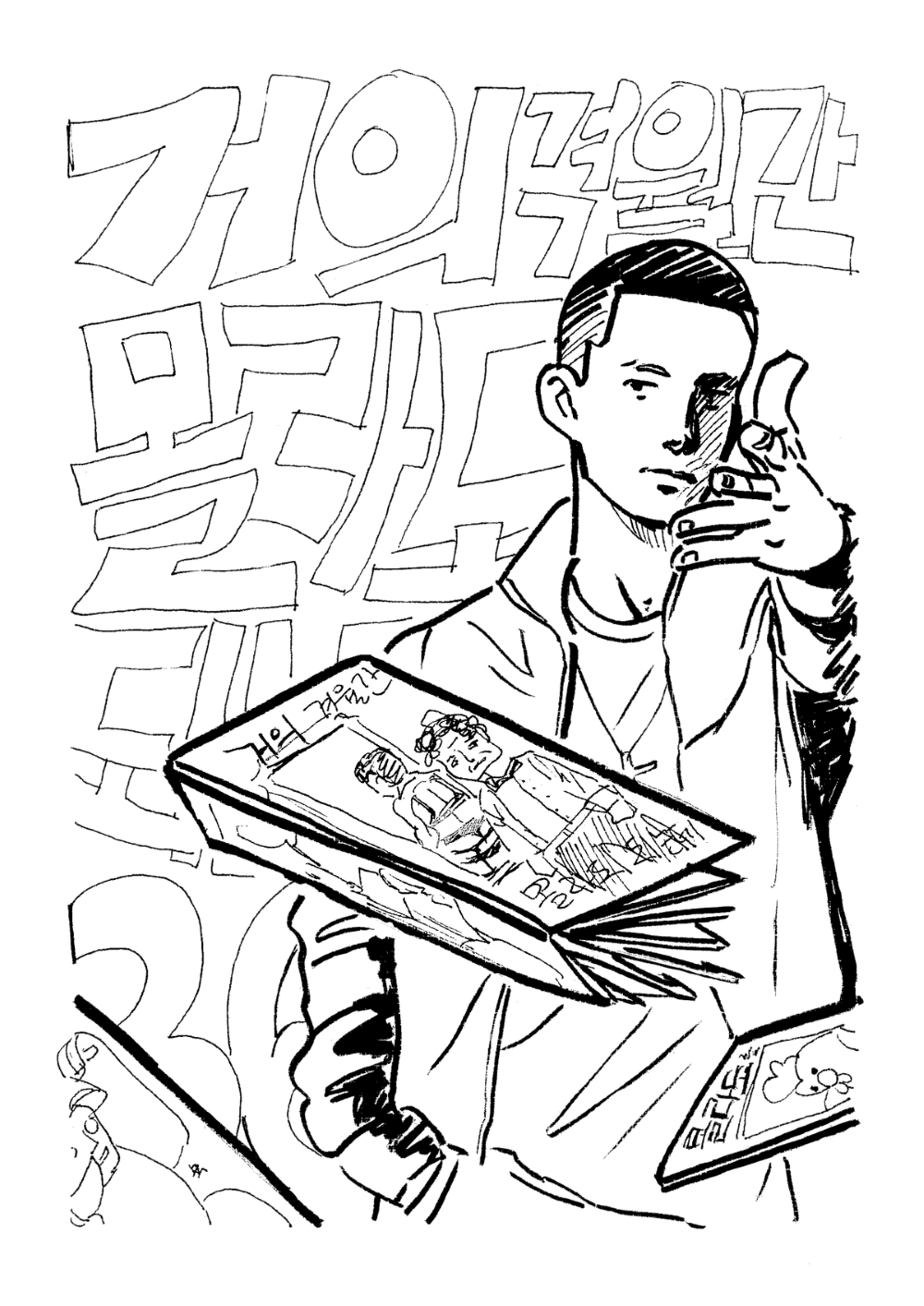
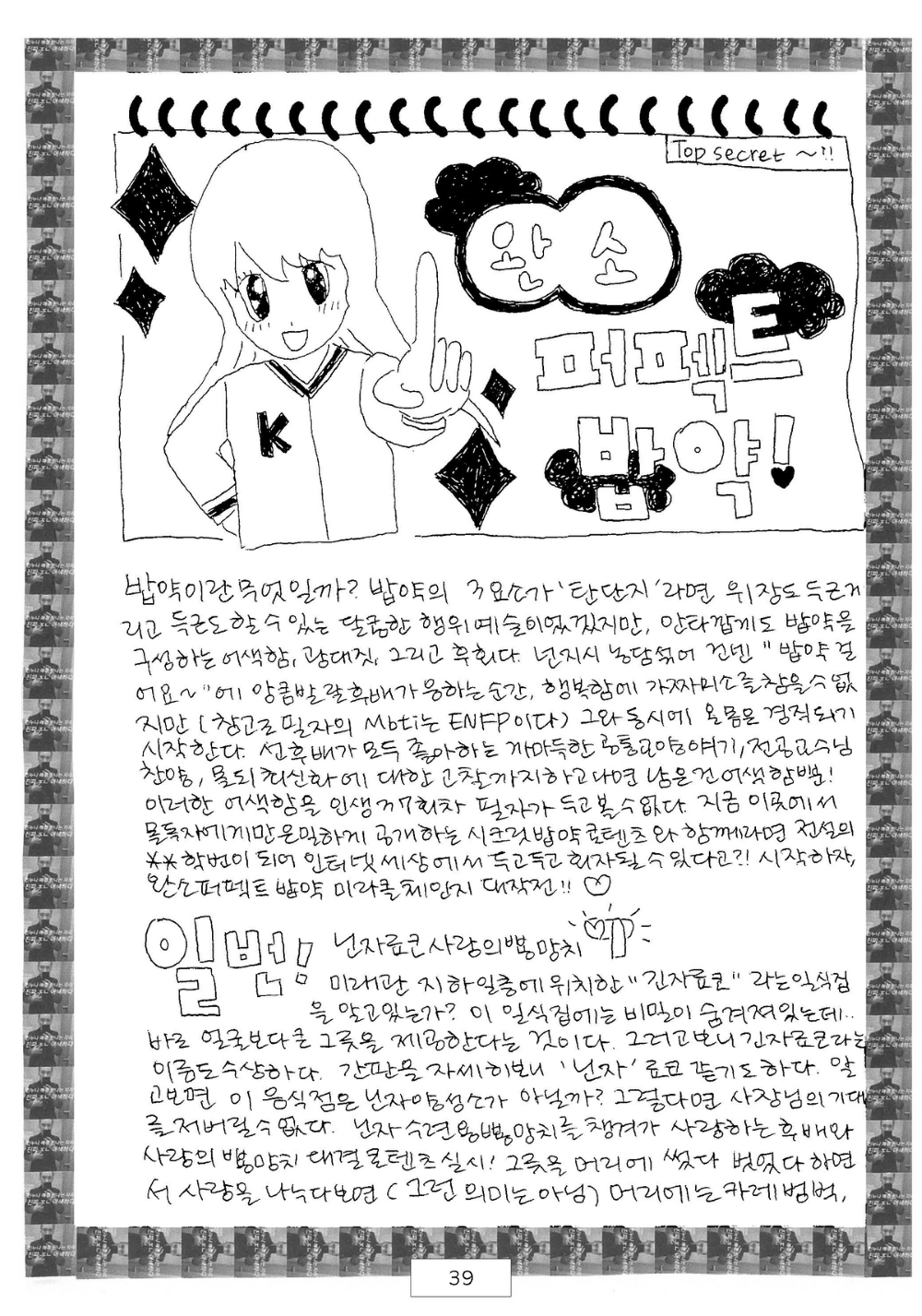
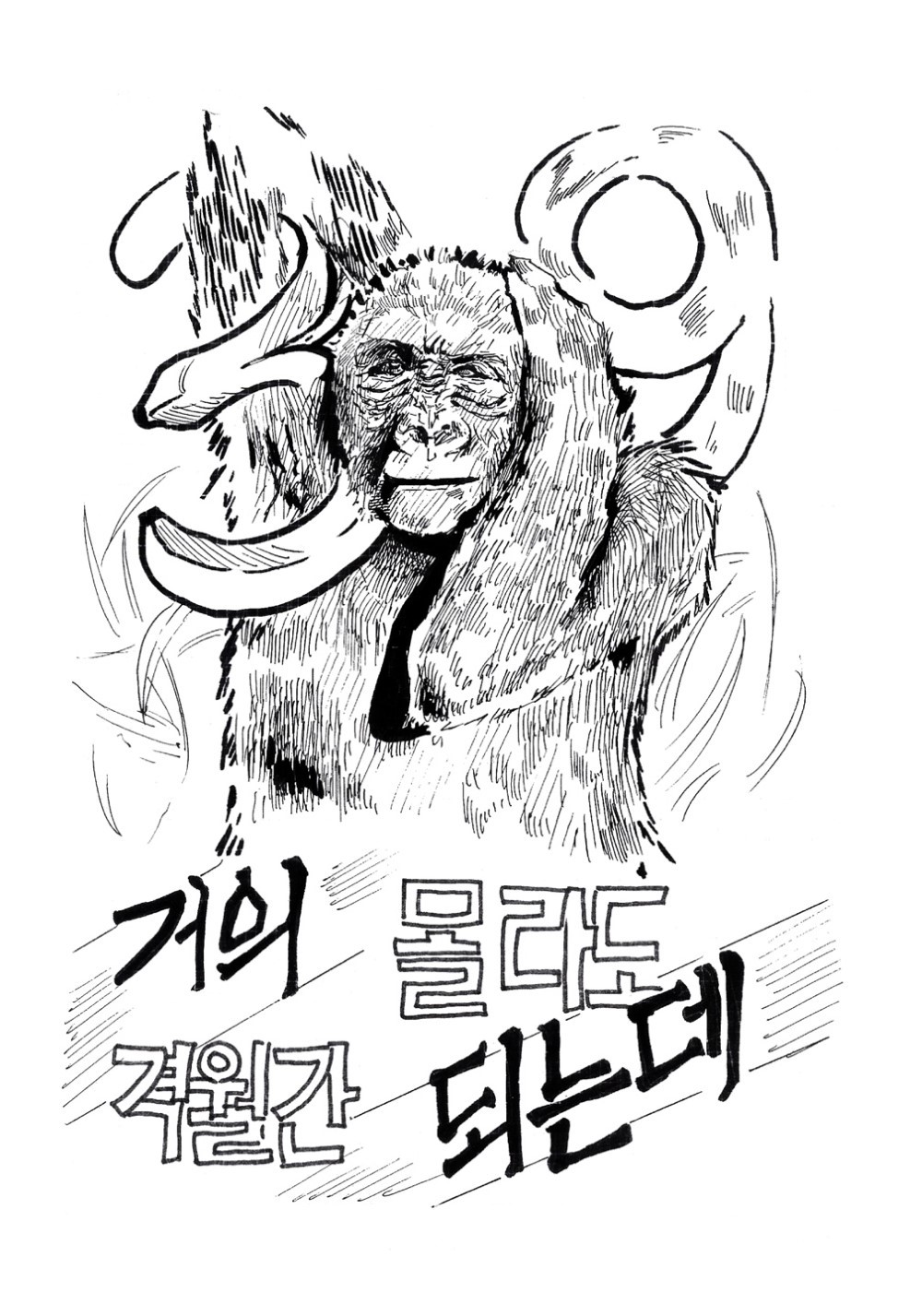
What are the criteria for the selection of ‘Don’t Know’ club members?
Hyun-bin: Our club is cheerful and fun, but not unserious. We want anyone who joins us to seek more than just fun.
Yoo-rim: What we think most important is wit and humor. We try to see whether someone can take a brilliant idea and write a story in as funny a way as possible.
Where do you find subjects to writing about?
Yoo-rim: I cover current issues related to the school.
Hyun-bin: I walk around the neighborhood to cover stories from the Anam-dong area. When I walk, I take off my earphones in order to listen to what students are saying to each other.
Tell us about the club’s traditions.
Yoo-rim: Every editor-in-chief has a nickname. The first chief editors were named ‘Dangun’ and ‘Wanggeom.’ I am called ‘Gyojoo.’ A piece of bone is handed down to the next editor-in-chief as a symbol of authority.
Is there a reason you insist on producing your magazine in handwritten form, and in an analogue format?
Hyun-bin: We could just take the easy and digital route, but I think what makes us distinctive from those working online is the handwriting of our members, with the time and effort involved in that.
Yoo-rim: We pursue the sensitivity and warmth that you can feel from well-thumbed books. Our identity is embodied in the expression of ideas through an uninhibited format.
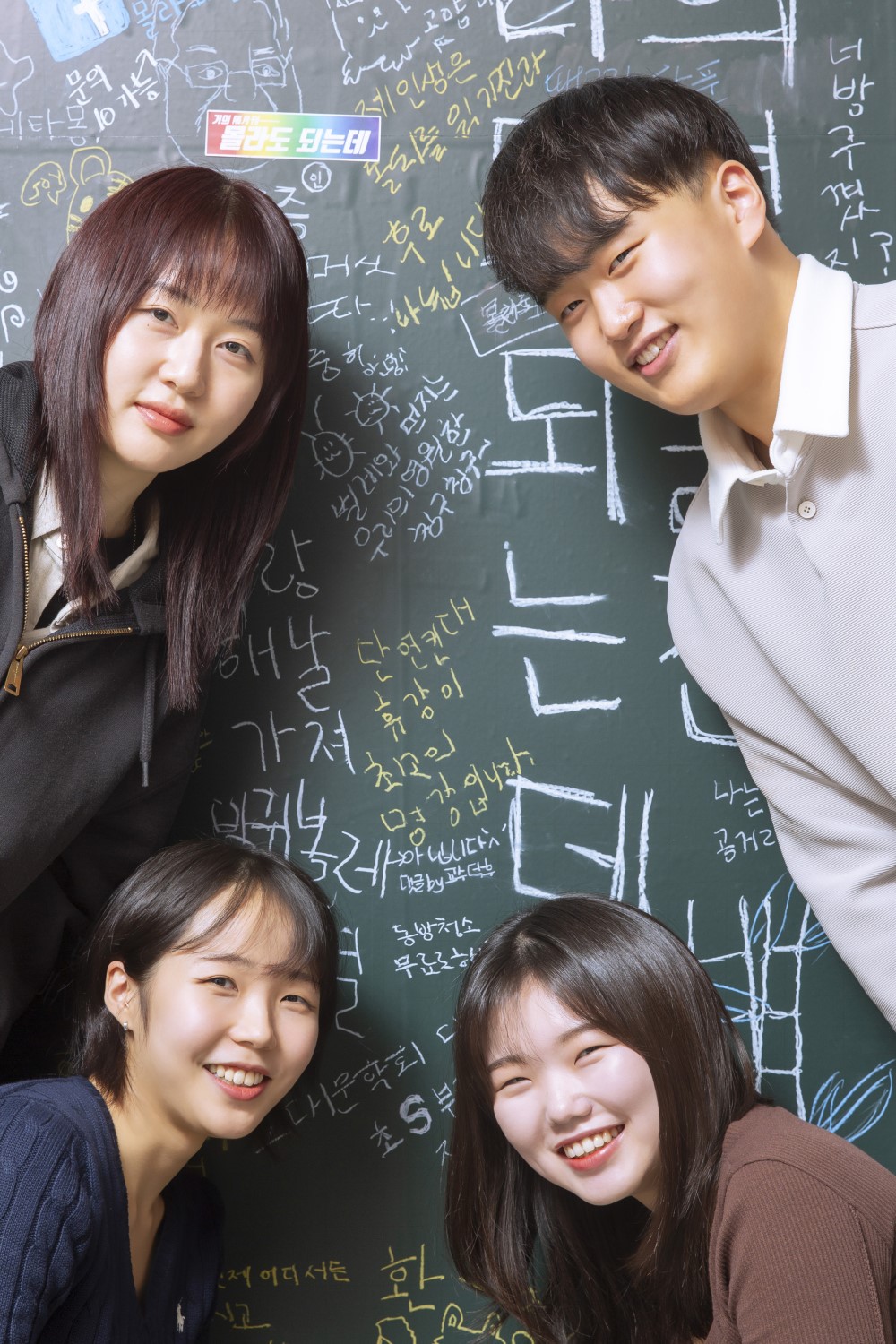
What type of media outlet are you developing? I also wonder how you can maintain boundaries in your work.
Yoo-rim: We should not undermine business ethics nor violate the freedom of speech, but we also want to let the voices of students be heard. We want to keep our spectrum of work as broad as possible.
Ji-yeon: Giving feedback to each other’s articles is the way we keep ourselves from crossing the line.
Hyun-bin: We want our magazine to take you to a moment, while you are reading it and laughing, to pause and think about the subjects we deal with seriously. We want to be a media outlet which would have been subjected to censorship had it come out to the world 40 years ago, but one that is not so antisocial or antiestablishment that the club room would have been searched by the authorities.
What is the ‘Don’t Know’ club to you?
Hyun-bin: The mischievous pleasure of life.
Han-gyeol: Extraterritoriality. You can do anything you imagine.
Da-mi: A finale to my college days. I was able to have fun doing this and that thanks to the club before I graduated.
Ji-yeon: A trash can of thoughts in a positive way (laughs)? You see, there are fewer and fewer people around you with whom you can actually talk about fun stuff candidly. In ‘Don’t Know,’ you can talk and write about what you cannot say to anyone.
Yoo-rim: It covers things that should not be ignored but instead should be known by more people. We are sort of geeks and funny folks. We all gather and put our heads together to write stories for our magazine.
So, where can I get ‘Don’t Know’?
Da-mi: You can come to our club room. We often go out to Minju Plaza, sit down on a mat and sell our magazine for 100 won, so you can also come by and buy it there. We don’t want to charge you more than that.
Ji-yeon: You can also barter for it.
Yoo-rim: I even traded tuna gimbap for our magazine and sold it for Japanese yen (laughs).
 11.jpg
11.jpg